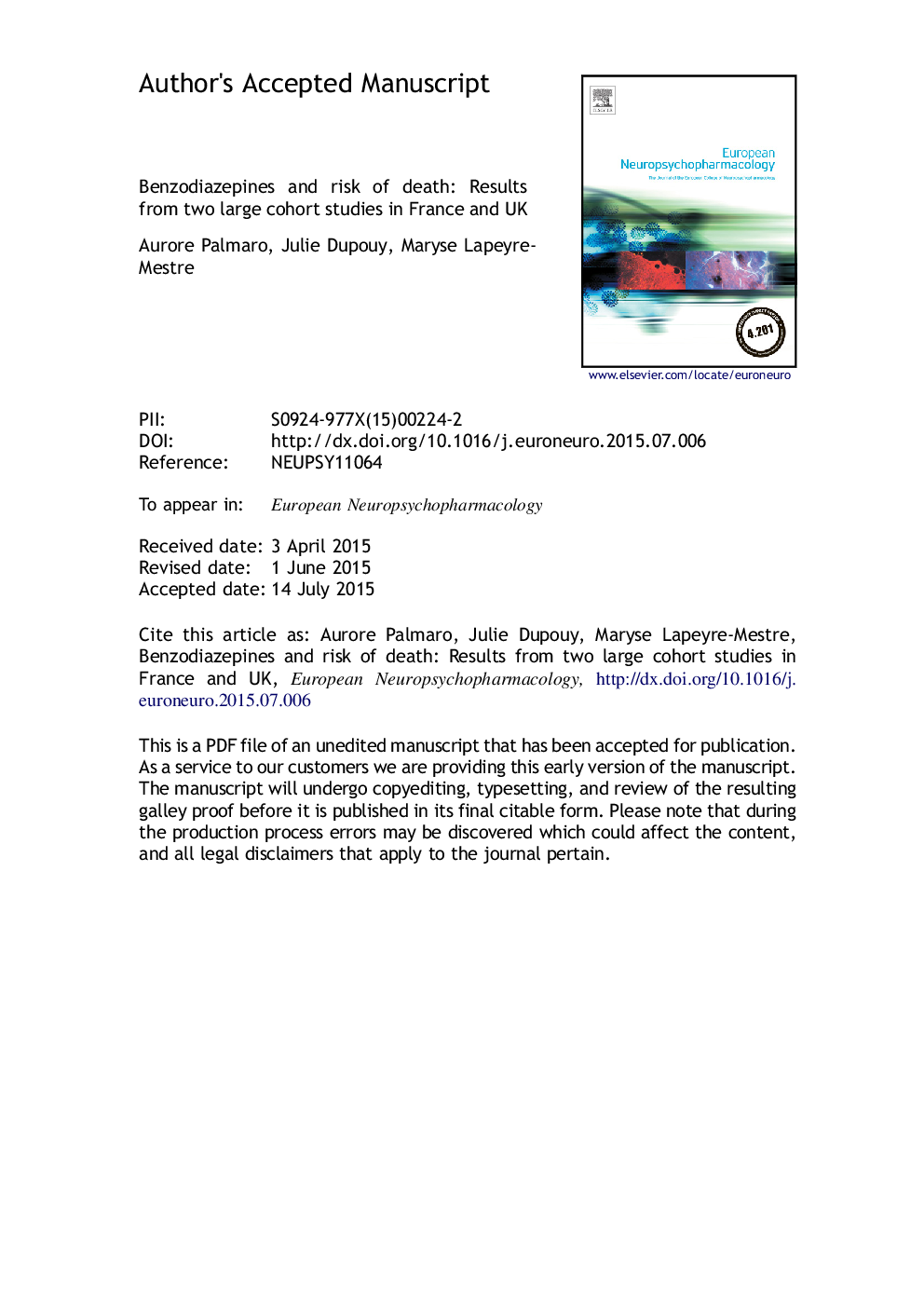| Article ID | Journal | Published Year | Pages | File Type |
|---|---|---|---|---|
| 10298617 | European Neuropsychopharmacology | 2015 | 26 Pages |
Abstract
Benzodiazepines are widely prescribed for the treatment of anxiety or insomnia, but their impact on mortality is still debated. This study investigated the impact of benzodiazepine use on short term mortality. Exposed-unexposed cohorts were constructed with the Clinical Practice Research Datalink (CPRD) in the UK and with the General Sample of Beneficiaries (EGB) in France. Benzodiazepine incident users were matched to incident users of antidepressants/non-benzodiazepine sedatives and to controls (non-users of antidepressants or anxiolytics/hypnotics) according to age and gender in both sources (and practice for the CPRD only). Survival at one year was studied using Cox regression model. In the CPRD, the final population comprised 94 123 patients per group (57 287 in the EGB). In the CPRD, adjusted HR was 3.73 in benzodiazepine users (95% CI, 3.43-4.06), and 1.61 (1.47-1.76) in antidepressant/non-benzodiazepine users compared to controls. When considering benzodiazepine use as a time-dependent covariate, adjusted HR for current use at 12 months was 1.70 (1.36-2.12). In the EGB, adjusted HR was 1.26 in benzodiazepine users (95% CI, 1.08-1.48), and 1.07 (95% CI, 0.91-1.27) in antidepressant/non-benzodiazepine users. When considering benzodiazepine use as a time-dependent covariate, adjusted HR for current use at 12 months was 1.03 (0.74-1.44). Using two nationally representative databases, we found a significant while moderate increase in all-cause mortality in relation to benzodiazepines, in a population of incident and mostly occasional users. This issue need to be monitored given the extensive use of these drugs.
Related Topics
Life Sciences
Neuroscience
Biological Psychiatry
Authors
Aurore Palmaro, Julie Dupouy, Maryse Lapeyre-Mestre,
